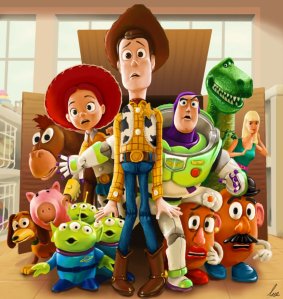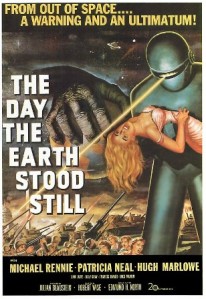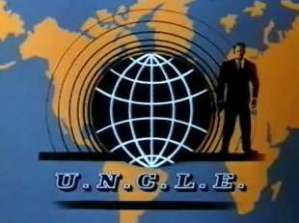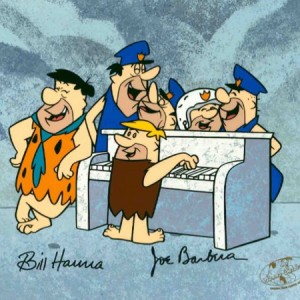Interesting and Weird Facts from World of Film and T.V. Music #8
As chief shareholder of Pixar, Steve Jobs also served as Executive Producer for the animated film, Toy Story. Reportedly, he originally wanted Bob Dylan as his first choice to write and perform the soundtrack to the film over Randy Newman. You’ve Got a Friend in Me, Mr. Tambourine Man!
Photo from http://grumpymickey.org/toy-story-4/
Interesting and Weird Facts from World of Film and T.V. Music #7
Flipper (1964-1967)
The 1960’s show was known as the aquatic version of Lassie. The music for this popular family series has several interesting twists, just like the show’s star, Flipper. The lyrics to the theme song, credited to William “By” Dunham, underwent a change in season two when a new version was tried with Frankie Randall singing the new words. It didn’t catch on, and after only five episodes the original version of the theme was heard for the rest of the series run. But perhaps most interesting is the music itself, which seemed to have French connections. The tune to the theme song was credited to Henry Vars, but the French-speaking world recognized the melody as La Romance de Paris. (The Love Song of Paris). The French inspiration also extended to the music written to accompany the long underwater sequences, which was inspired by Ravel’s Daphnis and Chloe.
Even Flipper’s accent was not quite right.
The famous “voice” of Flipper was actually the song of a kookaburra bird (an Australian bird) that was altered to sound like what the producers thought of as “dolphin speak.”
________________________________________
The words to the Flipper theme song:
They call him Flipper, Flipper, faster than lightning,
No-one you see, is smarter than he,
And we know Flipper lives in a world full of wonder,
Lying there under, under the sea!
Everyone loves the king of the sea,
Ever so kind and gentle is he,
Tricks he will do when children appear,
And how they laugh when he’s near!
They call him Flipper, Flipper, faster than lightning,
No-one you see, is smarter than he,
And we know Flipper lives in a world full of wonder,
Lying there under, under the sea!
Alternate lyrics for the first five episodes of the second season:
We call him Flipper, Flipper, you’ll see him smilin’
Right from the start, he’ll play it smart.
Beware of Flipper, Flipper, he’s such a lover,
You will discover when he steals your heart!
When you’re feelin’ sad, when you’re feelin’ blue,
He’ll make you glad, yes, that’s what he’ll do,
And what he can do you’ll never believe,
For he’s got tricks up his sleeve!
Beware of Flipper, Flipper, he’s such a lover,
You will discover when he steals your heart!
Source: Wikipedia and http://www.cpps90.com/luke/html/articles/tv_series.html
Interesting and Weird Facts from World of Film and T.V. Music #6
Casablanca (1942)
Play it again, Sam? Nope. Not only was this line never said in the classic movie, Casablanca, but the piano player was also faking it. The part of Sam was played by Dooley Wilson. He actually was not a pianist at all, but a professional drummer and singer who later took up acting. During the film, he watched an offstage pianist, Elliott Carpenter, and mimed along. Carpenter, placed just outside of the shot, was responsible for the piano playing heard in the film. The two became life-long friends. Dooley Wilson made only $350 a week for seven week’s of work. No information could be found about how much Carpenter, the actual piano player, earned for his off screen role. Wilson and Carpenter were the only two African-Americans on the set of the film.
Source: Wikipedia
Interesting and Weird Facts from World of Film and T.V. Music #5
Lost in Space (1965-1968)
Music links us to both the past and the future. Although the theme music for the opening and closing credits for the television series Lost in Space was written by John Williams, who was amusingly listed in the credits as “Johnny Williams,” much of the music heard in the first season was not composed by Williams, but by an already established composer, Bernard Hermann. Rather than use new music, the studio sought to repurpose a score that producers felt had the right sound. For the pilot and much of Season 1, they simply reused Bernard Herrmann’s eerie score from the classic sci-fi film The Day the Earth Stood Still from 1951. (See related post here).
Besides John Williams, whose work on subsequent Lost in Space seasons helped launch his composing career, other notable composers for Lost in Space included Alexander Courage (composer of Star Trek fame), who contributed six scores to the series.
Source: Wikipedia
Interesting and Weird Facts from World of Film and T.V. Music #4
The Day the Earth Stood Still (1951)
The music score for this fantastical space adventure was composed by Bernard Herrmann, and was his first Hollywood score after returning from a hiatus in New York. Possibly due to the quirky yet creative plot, Hermann decided on unusual instrumentation for the score: electric violin, electric cello, and electric bass, two theremins, two Hammond organs, a large electric organ, three vibraphones, two glockenspiels, marimba, tam-tam, 2 bass drums, 3 sets of timpani, two pianos, celesta, two harps, 1 horn, three trumpets, three trombones, and four tubas. Herrmann’s innovations included writing for unison organ, tuba, piano, and bass drum; staggered tritone movement, and theremin glissandos, as well as half-step dissonances and experimentation with overdubbing and tape-reversal techniques. The innovative score made a statement and created a new Hollywood sound that positioned Hermann immediately on the map as one of industry’s most sought-after composers.
Source: Wikipedia
Interesting and Weird Facts from World of Film and T.V. Music #3
The Man from U.N.C.L.E. (1964-1968)
A series known for it’s progressive music, largely due to the influence of Jerry Goldsmith’s work on the theme and several episodes, it is little wonder that major names in the business were sought to score specific teleplays. Besides Goldsmith, some of the major names included Morton Stevens, Lalo Schifrin, Walter Scharf, Gerald Fried, Robert Drasnin, Richard Shores and Nelson Riddle. But like the story lines in U.N.C.L.E. episodes, it didn’t always go as planned.
Considered by many as one of the greatest arrangers in the history of American popular music, Nelson Riddle scored only one two-part episode, “The Concrete Overcoat Affair.” Riddle’s music was so detested by producer Norman Felton that he never was hired again to compose for the series.
In other interesting trivia, originally co-creator Sam Rolfe wanted to leave the meaning of U.N.C.L.E. undefined, so the viewer could imagine it might refer to or the “United Nations,” or “Uncle Sam.” The MGM legal department, itself an acronym, expressed concern over using “U.N.” for commercial purposes, so the producers simply invented a name. Hence, U.N.C.L.E. became an acronym for the United Network Command for Law and Enforcement.
Acronyms were very important to this spy thriller series. T.H.R.U.S.H. was the villain organization that U.N.C.L.E. battled against. But, luckily, the musically inspired Every Good Boy Does Fine Always never quite caught on. The Man from E.G.B.D.F.A. just doesn’t have the right ring.
Source: Wikipedia
Interesting and Weird Facts from World of Film and T.V. Music #2
After the firing famous composer Alex North, due to the pilot episode going over budget, Dominic Frontiere was hired to write the series theme and music library for ABC’s The Rat Patrol. Rather than specific episodes, producers would use music from a library to score each episode. Love themes, action sequences and the like were composed for ease in interchangeability and reuse. It is perhaps somewhat ironic that given the plot of the show (battling Germany in North Africa during WWII), the music was recorded by the Graunke Symphony Orchestra, the forerunner of the Munich Symphony Orchestra (Münchner Symphoniker). Founded by conductor Kurt Graunke in 1945, the orchestra has recorded music for over 500 films, including George Bruns’ adaptation of Tchaikovsky’s ballet score for Walt Disney’s Sleeping Beauty, El Cid by Miklos Rozsa, Jerry Goldsmith’s score for The Wind and the Lion, and Howard Shore’s score for The Silence of the Lambs. Besides the Rat Patrol, the orchestra recorded the scores to a number of episodes for television series as well.
Budget worries for the series extended beyond music needs. As a leverage tool against the actors asking for raises, each major cast member was, after the first season, shown a separate prospective script in which he was killed in action.
Harsh.
Source: Wikipedia
Interesting and Weird Facts from World of Film and T.V. Music #1
The Flintstones (1960-1966)
The familiar theme song, “Meet the Flintstones,” was not heard until Episode 3 of Season 3. Composed by Hoyt Curtin, it was recorded with a 22-piece jazz band, and a five-voice singing group known as the Skip Jacks. The melody is possibly derived from (or at the least resembles) the ‘B’ section from the 2nd movement of Beethoven’s Piano Sonata No. 17.
Source: Wikipedia







